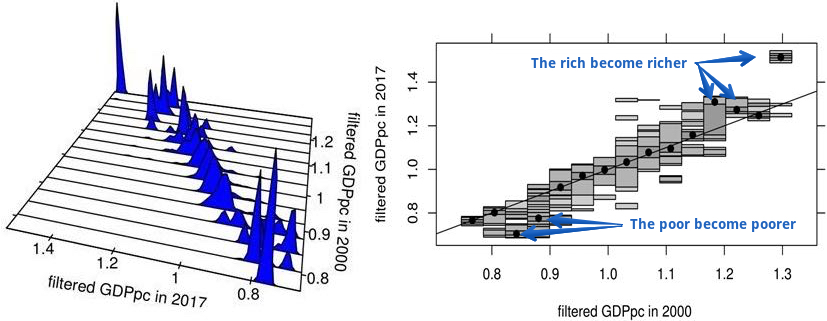Using a novel dataset constructed for this study, the spatio temporal dynamics of income per capita across 34 provinces and 514 districts in Indonesia over the 2010-2017 period are analyzed. First, an exploratory spatial analysis suggests that spatial autocorrelation is only significant at the district level, and it appears to be robust from 2013 to 2017. Consequently, at this level, a spatial filtering model is used for decomposing income into a spatially independent component and a spatial residual. Next, through the lens of a distributional convergence framework, it was found that the spatially independent component shows less intra-mobility than the original income variable. When analyzing beta and sigma convergence, strong converging patterns are found for filtered variables and the speed is higher for the filtered data. Thus, it is argued that neighbor effects have played a significant role in slowing the pace of income convergence at the district level. In terms of provinces, beta convergence is reported and the distributional convergence framework suggests the formation of at least three clubs with high intra-distribution mobility for the upper end of the distribution. The article is concluded by relating these findings to some plausible policy interventions.
